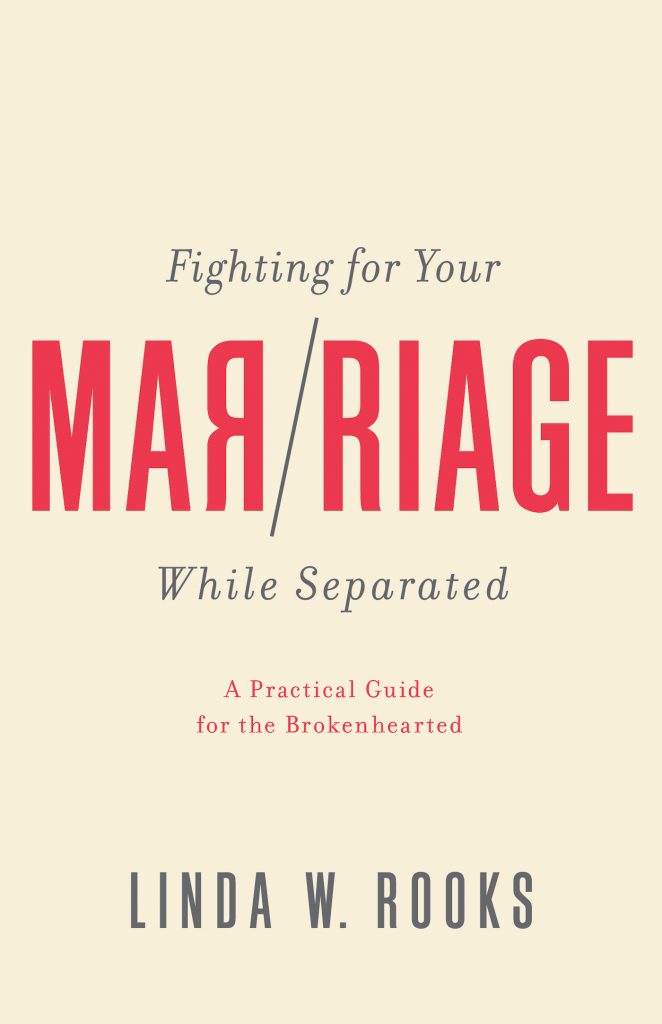At a Christian bookseller’s trade show, I met Chuck. He was a salesman at one of the publisher’s booths. When he discovered I was the author of a book on separation, he asked if I had a few minutes to talk. He explained that he and his wife were not living in separate residences but were separated within their own house. She wanted a divorce. He described a number of efforts he had made to try to reconcile, but nothing worked. He did not know what to do.
“I don’t know if this applies to you,” I said, “but one observation I’ve made with a number of couples at a marital impasse is that often when a separation occurs, one spouse is more assertive and one spouse is more passive, and it’s usually the more passive spouse who wants to leave.”
I explained a little more what I meant by assertive and passive, and I still remember the stunned look on his face.
“That sounds like our situation,” he said. “My wife is the passive one. She doesn’t tell me what she’s thinking, and I can be pretty persistent at times.” We talked for a while, and when he emailed me a couple of months later, he saw glimpses of hope.
This is one of many conversations I’ve had in which people whose marriage is in crisis have a lightbulb moment, suddenly seeing a negative undercurrent in their marriage that had been undermining their relationship for years.
Degrees of Assertiveness and Passivity
To understand how assertiveness and passivity can affect a marriage, it’s important to understand the wide spectrum implied in these terms and in this context. Neither is necessarily wrong, and in most cases, both partners probably need to make adjustments in their relational skills for the marriage to be successful. But if just one spouse is aware of the problem, that person can start the process of change to bring healing.
The important thing to consider is the degree of assertiveness and passivity that reigns in the marriage.
Passive Spouses
Passive spouses may be reluctant to express contrary feelings, or they may not like conflict. They may suppress their own thoughts and feelings to go along with their mate. Passive spouses may be people who try to express their emotions but feel inadequate in verbal skills.
The passive spouse may be a woman whose understanding of submission has led her to become a doormat. Or the passive one may be a spouse who genuinely feels intimidated by the other, even afraid.
Assertive Spouses
Assertive partners might just be honestly expressing themselves without meaning to shut out the other person. They may be pretty sure of their opinions, but a bit too controlling so their partner never wins arguments and feels powerless. Sometimes, assertive spouses are overbearing in their expectations without giving their spouse the freedom to disagree or have different opinions and feelings.
Other times, assertive spouses hover and do not let the other have different interests and take time for themselves. Assertive spouses may bulldoze their spouses by pressing their point over and over relentlessly until the worn-out one finally caves. Or an assertive spouse may actually be abusive in words or actions by saying insulting things or using physical force.
Whatever the dynamic taking place in the marriage, passive spouses who’ve not been expressing their needs and wants or who have been expressing them to deaf ears may finally come to a point where they feel suffocated and decide they’ve had enough.
What to Do?
The first step for an assertive spouse should be to take the pressure off and begin giving their partner lots of space. Ask the Lord to reveal to you the truth about yourself and how you may have been insensitive to your mate.
Do not deny the truth. Do not try to defend yourself. Look at yourself squarely in the mirror of Scripture and repent of anything that has taken freedom from your partner.
It is possible you have acted unknowingly, figuring you were right and your spouse should just appreciate your good judgment. You did not intend to stifle your mate. But once you see the truth, ask God to forgive you and show you how to change. Be teachable. Let other people speak honestly to you and help you see your flaws.
In the first email I received from Ron, he told me he did not know where to turn for help. He was separated and hurting. I told him about assertive and passive spouses, and a month later, I received another email from Ron as he began to see his part in his marriage collapse.
“I needed to change me,” he wrote. “Many things you bring up are me. Changes were overdue. I wouldn’t say I was overly forceful, but I was in my opinions. I had a tendency to wear her down. I know I did that. Would beat an ideal or my opinion about something almost to death at times.” As Ron was honest with himself and began focusing on God, he started to change. About sixteen months after they separated, I received an email from Ron and his wife telling me they were reconciling.
What about passive spouses? What can they do to rescue the marriage? Is it hopeless for them? They probably feel it is. But it’s not.
First of all, if you are a passive spouse, begin to speak up. Express your needs, wants, and opinions. Don’t expect your spouse to understand your concerns.
It is your responsibility to tell your mate what you need. If you are feeling overwhelmed in a particular exchange, take a break by excusing yourself to go somewhere to pray and ask God for clarity of thought.
Building up spiritual muscle through prayer and asking God for courage will prevent fear or intimidation from shutting you down. — Tweet This
You might start by confessing to your husband or wife the realization that you have made a mistake by failing to express yourself in the past. Then let your partner know you want to correct that by sharing what is on your mind. This might actually bring a receptive response.
If your spouse is resistant and uncooperative, you may need to seek counsel from a counselor, pastor, or Christian friend to help you find a better way to set up guard rails of protection about your heart while you face your fears and learn to confidently speak “the truth in love” (Ephesians 4:15).
Finding the Love Again
Understanding where each person fits in this equation can help couples work through stalemates and crisis to find renewed love and fulfillment. Some individuals are more assertive in expressing wishes and opinions; others are more passive or less able to articulate what’s on their minds.
Reflecting on your relationship to recognize your strengths and weaknesses can help you understand if you may need to offer more freedom to your spouse or if you need to ramp up your courage and begin speaking up. The Bible tells husbands and wives to have mutual respect for one another (1 Peter 3:7).
By tempering your own assertiveness or bolstering a new boldness in your conversation, you may begin mending those broken bridges to love.

FIGHTING FOR YOUR MARRIAGE WHILE SEPARATED: A PRACTICAL GUIDE FOR THE BROKENHEARTED
In this transformative guide, men and women who are separated but hopeful for restoration will discover life-changing truths about God, themselves, and their marriages.





